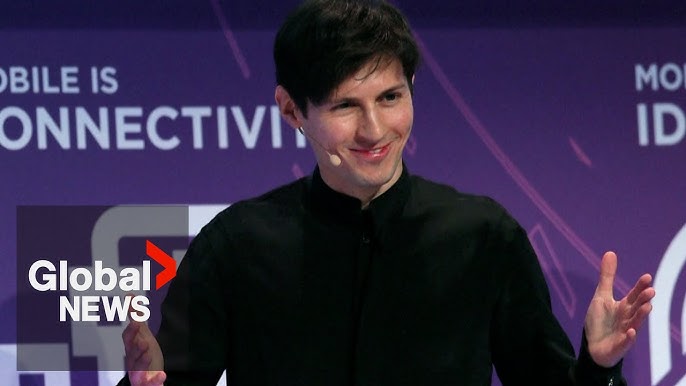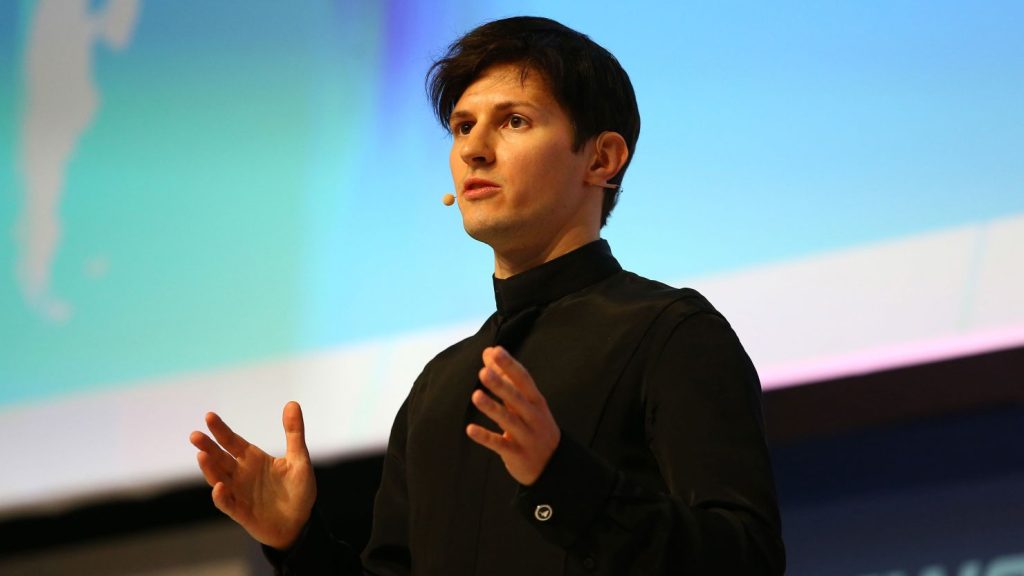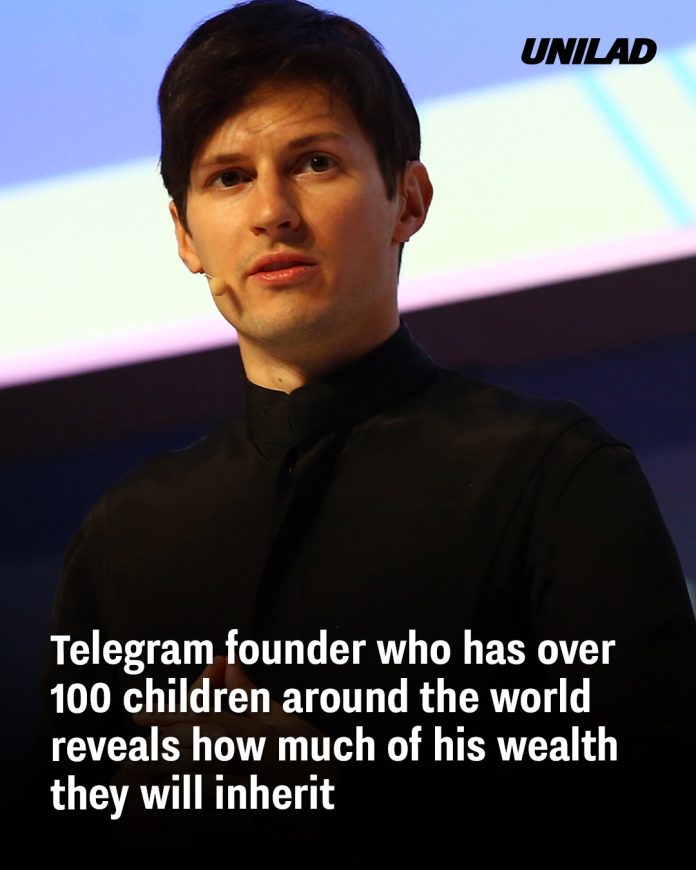At 40 years old, Pavel Durov—the enigmatic founder and CEO of Telegram—has once again startled the world with a revelation that redefines not only fatherhood, but the very meaning of legacy. In a recent in-depth interview, Durov disclosed something surprising: he has fathered more than 100 children, including six biological offspring raised with three different partners, and over 90 children worldwide through anonymous sperm donations. But even more astonishing is his plan for the billions he has amassed: he intends to distribute his entire fortune, estimated at between $13.9 and $17.1 billion, equally among every one of his children. Yet none will receive their inheritance for another thirty years.

Durov’s journey into fatherhood has been far from conventional. He confirmed six children born through traditional relationships, reflecting a deeper personal life away from the tech spotlight. Yet his story gained international intrigue when he revealed he had responded to a friend in need by providing sperm donations—donations that extended well beyond expectations. Clinics in a dozen countries reportedly used his sperm to help families conceive, and now more than ninety children trace their genetic origins to the Telegram founder. In total, around 106 individuals are now recognized as his direct offspring.
Despite never marrying, Durov’s choice to become a biological father to so many through sperm donation underscores his distinctive blend of personal freedom and unorthodox thinking. His explanation—framed as an act of generosity, prompted first by a friend in need and then carried forward by clinics impressed with his “high-quality genes”—paints a picture of an impulsive yet deliberate architect of a global family.
Perhaps equally compelling is Durov’s plan for his wealth. Rather than keeping his fortune to himself or selectively passing it down, he has drawn up a will that treats all his children equally. His rationale is clear: preserving familial harmony. “I don’t want them tearing each other apart after my death,” he said. Each of his hundreds of children will eventually receive the same portion of his estate. Based on his current worth, that translates to a life-changing sum—roughly $130 million each, by one estimate.
Yet Durov is placing a major condition: no child will be able to access their inheritance until 30 years after his statements were made—in other words, no one will have access before 2055. His rationale goes beyond wealth management. He wants his children to grow up “like normal people,” cultivating independence and responsibility before becoming beneficiaries of a vast fortune. It’s a deliberate timeline aimed at delaying sudden privilege and preventing them from inheriting entitlement too young.
While many admire Durov’s progressive approach, others have raised concerns. Some question the ethics of fathering so many children anonymously—and the emotional implications for offspring who may seek paternal bonds later. Critics of sperm donation proliferation argue that anonymity makes future relationships difficult, especially if children eventually wish to connect with their biological father.
On another front, Durov’s personal life is complicated. Amid his revelations, reports emerged of allegations from one former partner involving abusive behavior and unpaid child support. These claims remain in legal review, and Durov denies wrongdoing. For now, the public focus remains fixed on his unconventional family and inheritance strategy.
Durov first rose to prominence in St. Petersburg with VKontakte, Russia’s equivalent of Facebook. He fell out with Russian authorities in 2014 over data privacy and censorship demands, fled the country, and built Telegram as a global, encrypted messaging platform valued for its privacy stance. Today, Telegram serves nearly one billion users worldwide.
A committed libertarian, Durov lives ascetically—eschewing alcohol, tobacco, caffeine, and even abstaining from meat at times. His lifestyle choices, including intermittent fasting and physical fitness, reflect a disciplined worldview. He is now a citizen of multiple nations and resides in Dubai, where he continues to shape Telegram’s future.

Pavel Durov’s story today is not just one of coding breakthroughs or encryption skills—it is a radical challenge to how modern society defines inheritance, responsibility, and parental responsibility. One man, dozens of partners, over a hundred children, billions of dollars—and a three-decade lock on access. Whether viewed as visionary or controversial, his plan forces a reckoning with wealth ethics, progeny rights, and the shifting definitions of family in a digital era.
As the years pass and that inheritance lock eventually lifts, society may finally see the legacy of Durov’s daring experiment. Until then, his children will grow up without knowing exactly what lies ahead—and the world will watch, curious and divided, over what happens next.

















